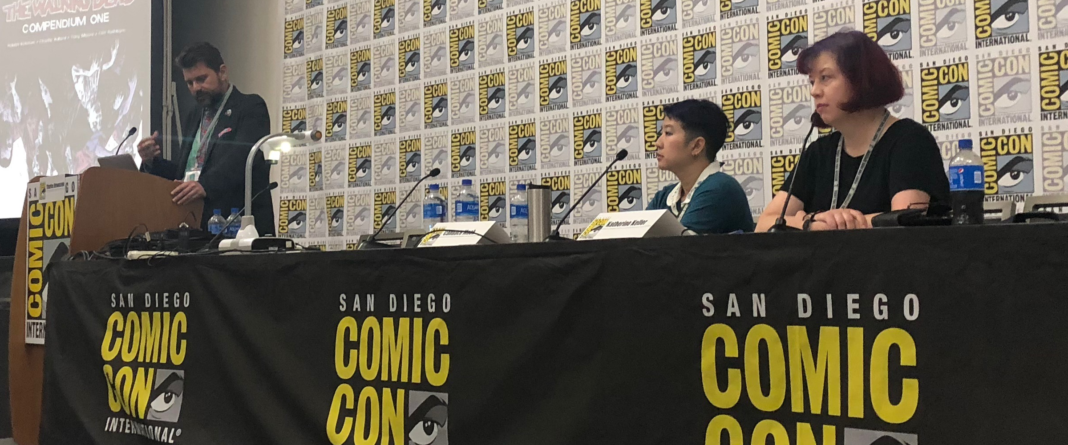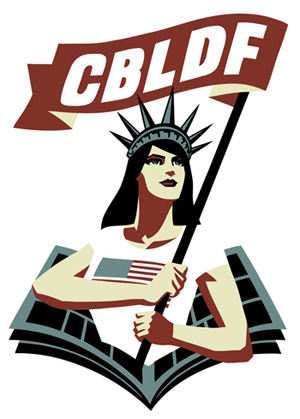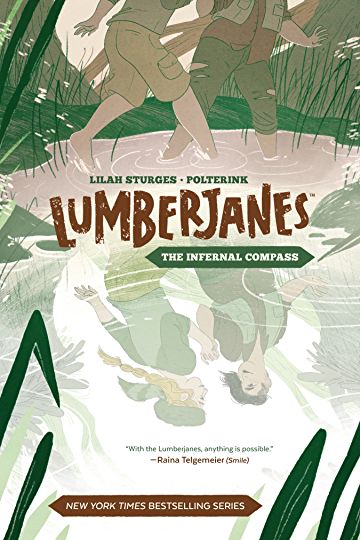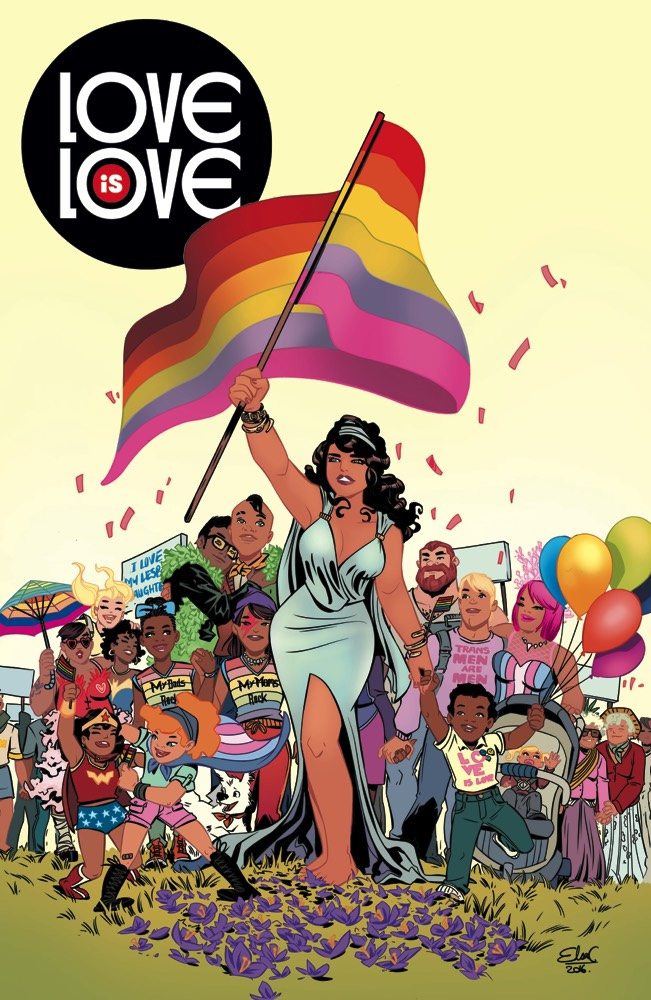The Censorship in Comics panel surveyed the current state of censorship in the medium at San Diego Comic-Con on Thursday, using a number of contemporary case studies for reference. The panel moderator was Charles Brownstein, the Executive Director of the Comic Book Legal Defense Fund.
The Comic Book Legal Defense Fund
The CBLDF protects the free expression rights by fighting censorship, work that is essential in protecting future comics.
Brownstein emphasized that the work of the CBLDF is founded on the First Amendment. “This means that in the USA, freedom of expression isn’t a privilege, it’s a guaranteed right,” he said. ”And yet, despite this fact that’s enshrined in our Constitution, we regularly see pushback against content.”
According to Brownstein, comic book censorship has undergone many permutations over the years, from retailers being prosecuted for selling adult material to adults to cartoonists being punished for the content of their work.
More recently, academic and library spaces have seen increased pushback, trending toward “identity censorship.” Brownstein described identity censorship as a pervasive and destructive trend that involves censoring content because of the author of the work, the content, or the intended audience for the material.
Brownstein said that the queer community was the most frequent target of this type of challenge, but he noted that the CBLDF has previous experience with identity censorship. He said that books by people of color addressing issues like police violence had faced these types of challenges, citing The Hate U Give by Angie Thomas as an example, and added that books by women have faced identity censorship as well.
The CBLDF is actively monitoring what Brownstein characterizes as an “emboldening” of these types of challenges. More calls for identity censorship and an increase in the frequency of lawsuits against schools for curriculum decisions made by education professionals.
Library events face identity censorship challenges
It isn’t only books that have faced censorship in libraries. Brownstein noted another recent trend of challenges to particular library events.
Panelist Candice Mack, coordinator for system-wide teen services at the Los Angeles Public Library, was able to provide a ground-level perspective on these types of challenges. She said that one type of event that has attracted attempts at censorship in some areas is drag queen storytime, an activity that involves drag queens visiting the library and reading storybooks to children.
Incident at the Leander Public Library
Another recent event challenge took place at the Leander Public Library on July 9th. Lilah Sturges was notified two hours before she was scheduled to appear at the library and discuss her work writing Lumberjanes: The Infernal Compass that the event had been canceled. The stated reason was that the city government had decided to place a freeze on all library events involving children at the library as a result of local pushback against drag queen storytime.
“By all appearances, it looks like the Leander Public Library canceled this event on a discriminatory basis,” said Brownstein, “Because Lilah is a trans author, and because this follows a moral panic involving LGBTQI materials.”
According to Brownstein, an investigation by the CBLDF has uncovered that other events have been allowed to take place in spite of the rule they had cited when canceling her event. Further, in that same phone call, Sturges was told that a background check would be necessary, a requirement that has not been enforced in any other individual appearing at a library event.
In a letter to the library, the CBLDF joined with other anti-censorship organizations demanded that the Lumberjanes speaking event be reinstated and the discriminatory ban be reversed.
Education Censorship
Panelist Katherine Keller, who is a CBLDF board member and works in the Teacher Development and Resources Library at the University of Nevada Las Vegas, offered insight into strategies for censorship that can occur in an academic setting.
Keller’s responsibilities at UNLV include helping write collection policies and challenge policies that will ensure all voices can be heard. Keller explained that it was necessary for public institutions to have a challenge policy because the public dollar is being used to fund these collections.
Keller highlighted how important it is to be aware of school challenge processes and hold administrators and board members responsible if they fail to comply with internal policy. “We are not preparing the youth correctly if we are allowing them to attend schools that are run like fiefdoms,” Keller concluded.
Mack added that having a Collections Development Policy that reflects the mission of the library system in place is an effective tool for dealing with the issues that arise when a censorship challenge occurs. When a person questions whether or not a particular book belongs in a collection, the development policy can be consulted to determine whether the challenged material violates the mission statement or if it belongs within the collection.
Standing Matters
Brownstein said getting in touch with the CBLDF as soon as a censorship challenge has been made can be key in ensuring access to the information can remain intact throughout the course of the challenge and afterward. To illustrate the point, he cited an incident in which the LGBTQ+ comic anthology Love is Love faced a censorship challenge at a high school in Irving, Texas.
A pair of teachers included Love is Love on the syllabus for a unit on social justice. The syllabus was approved, and the teachers secured a grant that was used to purchase the books for the class. However, two days before the unit was set to begin, the superintendent received a complaint regarding the comic anthology and the principal told the teachers to return the books and abandon the unit.
While the school already had an internal process for dealing with these types of challenges, but when they found that their concerns were ignored, they both left the school and sought out employment elsewhere. The following school year, in April 2019, the teachers contacted the CBLDF and explained the circumstances.
Unfortunately, there was little the CBLDF could do in this instance. Because the teachers did not contact the CBLDF until after they had left their jobs at the high school, they no longer possessed standing to bring a First Amendment case. While dealing with a censorship challenge can be daunting, reaching out to an organization like the CBLDF as soon as possible can make an impact.











Comments are closed.